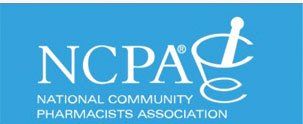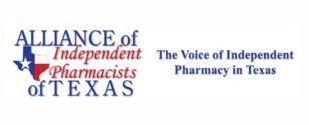Mon-Fri 9am - 6pm l Saturday 10am - 2pm l Sunday Closed
Side Effects vs. Allergic Reactions
Side effects are expected results from taking medications. They are mild, short-term, and more of an irritation than a problem. There are many common ones that are expected and go away quickly or have easy fixes, such as taking with food or spreading out doses.
Nausea and vomiting, diarrhea, or stomach pain are common side effects, especially when they are being taken for the first time or on an empty stomach. Examples range from common drugs, like aspirin and ibuprofen, to antibiotics, such as Augmentin, used to treat infections. If these are the only symptoms, it may just be a sensitivity reaction and not an actual allergy. A true drug allergy is caused by chemicals processes in the body and produces a reaction with specific symptoms (listed below). Either way, caution should be used and consulting your Kearney Park Pharmacist would be beneficial.
Adverse (unwanted or unexpected) reactions to drugs are common and documented but different for each person. Almost any drug can have a negative effect on the body. Reactions range from mild side effects such as nausea and vomiting to life threatening shock to the entire body (anaphylaxis) or, even, death.
Anaphylaxis is serious emergency. It may be brought on by medication or something as simple as an insect bite/sting, pollen, or food. In some cases, the reaction can occur within seconds of exposure. There are signs and symptoms (listed below) that suggest this severe reaction is occurring, and, if so, requires immediate medical attention.
Symptoms
Drug allergy:
- Itching of the skin or eyes (common) – some exceptions, including opioids
- Skin rash/hives (common)
- Wheezing
Anaphylaxis:
- Swelling of the lips, tongue, or face
- Difficulty breathing
- Drop in blood pressure
- Feeling the heart beat (palpitations)
Anaphylaxis may lead to death if left untreated for too long and should always be considered an emergency if a person appears to have the symptoms.
In many cases, the 1 st exposure/reaction is not as severe as the 2 nd and other subsequent times. The initial time, the body is attacking the cause but has not built strong defenses. If an allergic reaction is suspected at all, it is best to be cautious of the offending agent starting from the first time.
Treatment
The goal of treatment for anaphylaxis and allergic reactions is to relieve symptoms and prevent further damage as quickly as possible.
Treatment may include:
- Epinephrine (EpiPen) by injection to treat anaphylaxis
- CPR (if heart stops)
- Antihistamines (Benadryl, Zantac) to relieve mild symptoms such as rash, hives, and itching
- Bronchodilator (Proventil, ProAir) for breathing symptoms (wheezing)
- Corticosteroids (prednisone, hydrocortisone) to decrease inflammation and swelling
In some cases, the body may be desensitized to the offending agent. This treatment involves being given larger and larger doses of a medicine to improve your tolerance to the drug. The desensitization should be done by an allergist, who may also conduct tests to determine to what different things you may be allergic.
Testing
Skin testing may help diagnose an allergy to medications or certain foods. This is an indicator of how the body will react when exposed to different allergens.
Knowing whether a reaction is a side effect or an allergy is important with respect to medical care. It will determine what types of medications and materials need to be avoided when being examined and treated.


Hours of operations:
Mon-Fri 9am - 6pm l Saturday 10am - 2pm l Sunday Closed

Located @ 3224 Gus Thomasson Rd - Mesquite, TX 75150
HIPPA Privacy Policy - Serving the Entire DFW Area - Design & SEO by Ozment Media




